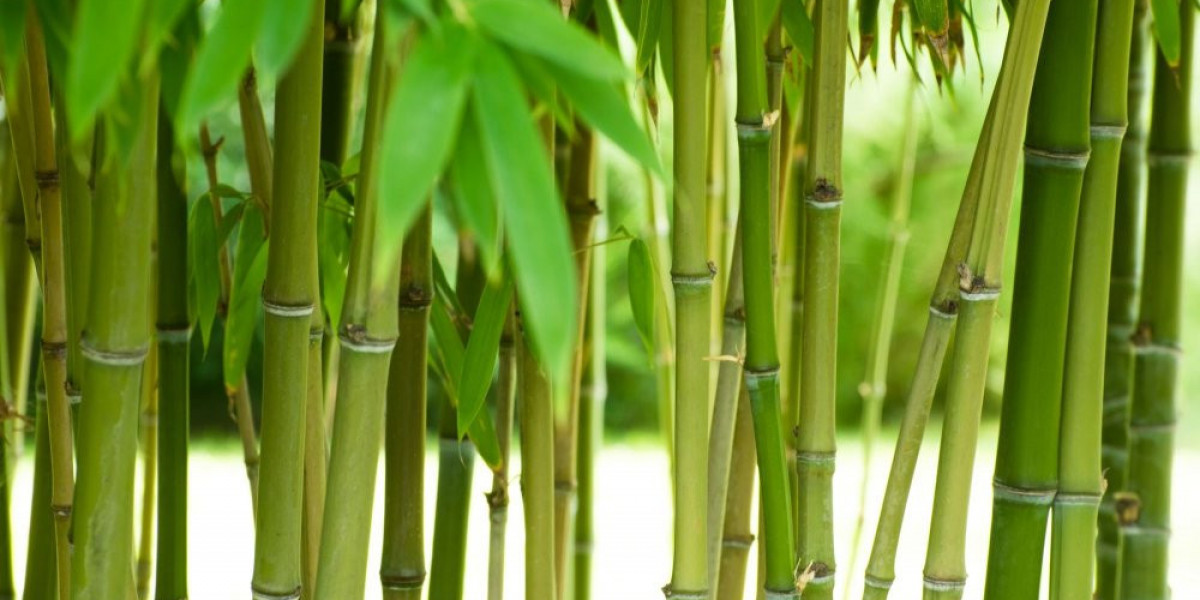Bamboos belong to the grass family Poaceae and subfamily Bambusoideae. With over 1,450 species of bamboos spread across the tropical and subtropical regions of the world, they are one of the most widely cultivated and commercially important non-timber forest products.
Types of Bamboo Products and their Uses
Raw bamboo - Culms or shoots are used for scaffolding, flooring, fencing, furniture and handicrafts. They have high tensile strength compared to wood.
Processed bamboo - After chemical or thermal treatment, culms are transformed into durable flooring, panels, doors, windows and furniture with applications in construction and decor. These Bamboos product gain popularity due to sustainability.
Textiles - Bamboo viscose and lyocell fibers made from cellulose are used to manufacture clothing, linens and towels which are moisture-wicking and eco-friendly. China is a pioneer in bamboo fabric production.
Food products - Fresh and canned bamboo shoots are a staple in Asian diets. Dried shoots are used to make snacks, bread and beverages rich in fiber and antioxidants. Chopsticks and other tableware are also made from bamboo.
Paper and packaging - From notebooks, papers to bags, bamboo pulp substitutes wood pulp in paper manufacturing, offering strength and acid-free characteristics. Packaging boxes are gaining ground in export products.
Growth Drivers of Bamboo Industry
Rising environmental consciousness - With properties of carbon sequestration and faster growth, bamboo emerges as a sustainable alternative to wood and plastic in construction, textiles and packaging industries.
Developing export markets - Demand from developed nations for green certified bamboo products drives large-scale commercial production in tropical countries with good yield potential.
Value addition and product diversification - New applications in industrial sectors explore the technical and commercial viability of bamboo composites, chemicals and energies on industrial scale.
Government initiatives and policies - Countries support bamboo cultivation through incentives, programs for processing infrastructure and trade missions showcasing export potential. This boosts production, creates rural jobs and entrepreneurship.
Technical innovations - Advances in preservative treatments, composites, new product designs and automated manufacturing systems enhance economic viability and value proposition of bamboo industry globally.
Challenges and the Road Ahead
While bamboo trade and applications are expanding rapidly, there exist certain challenges which, if addressed, can accelerate this multi-billion dollar industry's growth further. Major issues include lack of quality standards and grading systems, high production costs vis-à-vis competing materials, shortage of skilled labor, limited financing options for bamboo entrepreneurs and need for coordinated global branding of bamboo. Continued R&D, development of proper supply chains, training of manpower, financing support from public and private sectors can help bamboo fulfill its potential as the sustainable grass of future. With the rising societal shift towards natural and eco-friendly products worldwide, the bamboo industry is well poised for robust growth and higher profits over the next decade.
Get More Insights on Bamboos
Get this Report in Japanese Language- バンブー
Get this Report in Korean Language- 뱀부
About Author-
Money Singh is a seasoned content writer with over four years of experience in the market research sector. Known for her strong SEO background, she skillfully blends SEO strategies with insightful content. Her expertise spans various industries, including food and beverages, biotechnology, chemical and materials, defense and aerospace, consumer goods, etc. (https://www.linkedin.com/in/money-singh-590844163)










